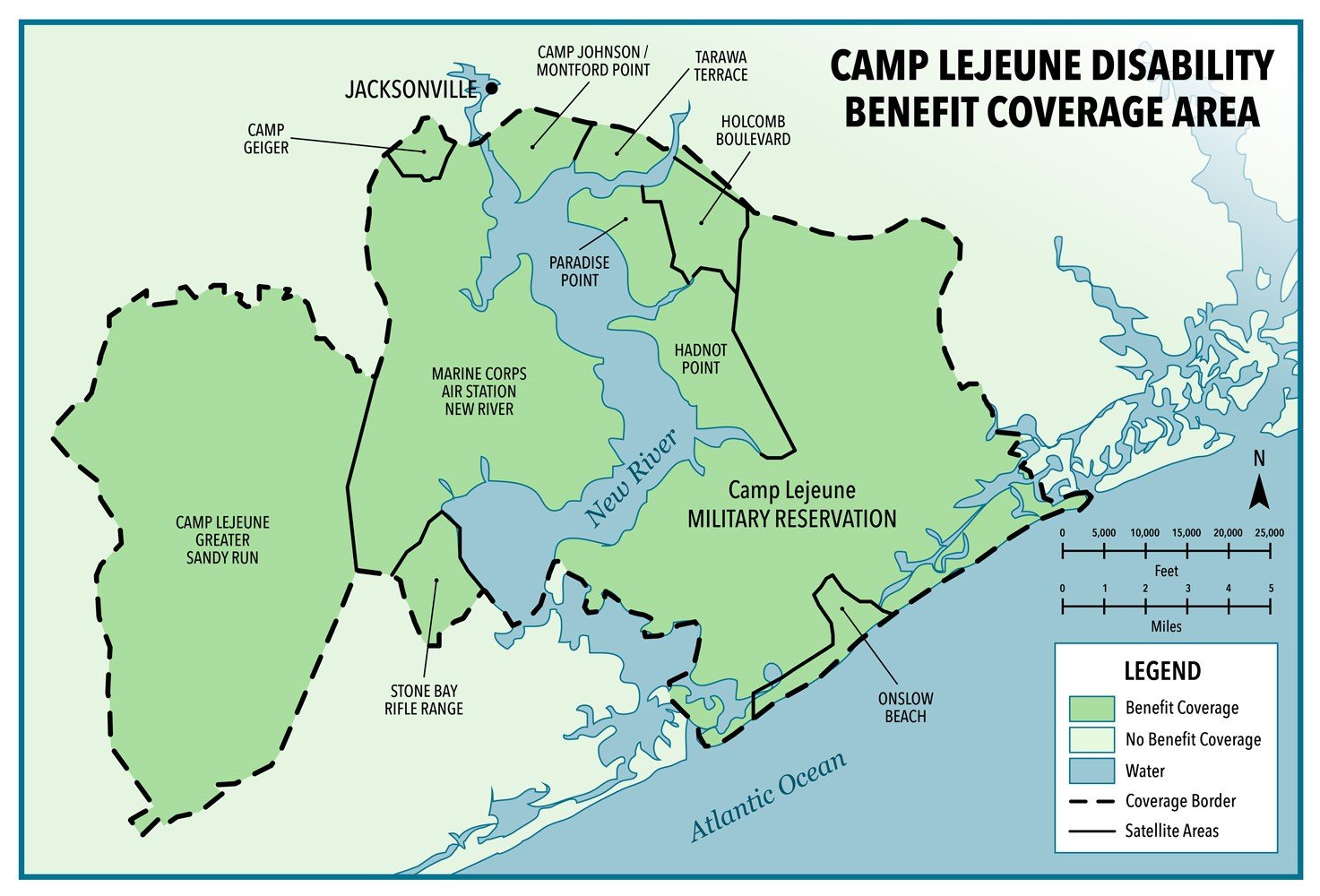Veterans Court rules veteran family members must have resided at Camp LeJeune to receive free healthcare benefits.
Straw v. Wilkie, CAVC No. 18-7129 (June 26, 2020)
After the Honoring America’s Veterans and care for Camp Lejeune Families Act of 2012 became law, the VA was required to offer free medical services for certain conditions to veterans who served at Camp Lejeune in North Carolina for at least 30 days and thereby presumed exposed to benzene, industrial solvents and other chemicals in the drinking water at the Marine Corps Base Camp. Those free medical services are also offered to veteran’s family members who “resided” at Camp Lejeune.
The United States Court of Appeals for Veterans Claims defined in Straw v. Wilkie what it means to have “resided” at Camp Lejeune in North Carolina for purposes of qualifying for VA healthcare benefits for exposure to chemicals and solvents in the drinking water at the Marine Corps Base Camp. The Veterans Court turned to Oxford English Dictionary (2d ed. 1989) for a definition of the phrase “to reside”: “To dwell permanently or for a considerable time” or “to have one’s settled or usual home in or at a particular place.” (citing United States v. Williams, 836 F.3d 1, 7 (D.C. Cir. 2016)).
The Veterans Court held that Straw, who was the child of a veteran stationed at Camp Lejeune, did not “reside” at Camp Lejeune because the family’s home was seven miles away at Jacksonville, North Carolina. The veteran’s child had argued that his mother, while he was in utero and after he was born, had been present at Camp Lejeune for more than 30 days while his mother visited base for various reasons.
The Veterans Court stated that the “served at” requirement for veterans, and the “resided at” requirement for veteran’s family members, were distinctly different. While a veteran need only have “served,” the families members must have “resided.” Visits to Camp Lejeune were not enough to reside there.
What this means for veterans and their families is that family members who did not actually live at Camp Lejuene will have a harder time obtaining free medical care for Camp Lejeune illnesses, which include:
Esophageal cancer
Breast cancer
Kidney cancer
Multiple myeloma
Renal toxicity
Female infertility
Scleroderma
Non-Hodgkin’s lymphoma
Lung cancer
Bladder cancer
Leukemia
Myelodysplastic syndromes
Hepatic steatosis
Miscarriage
Neurobeh

